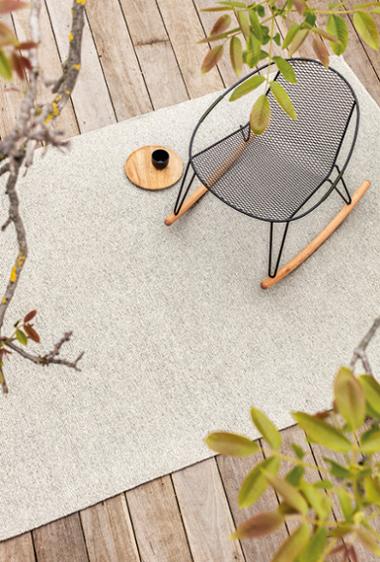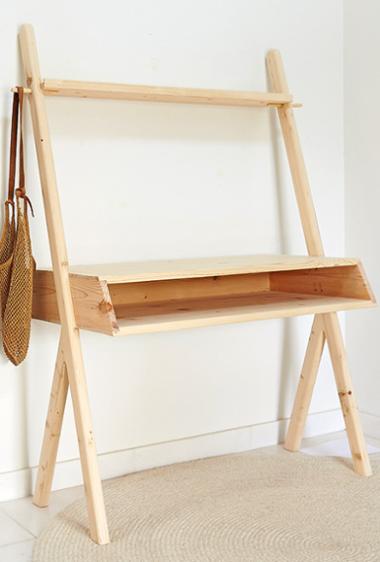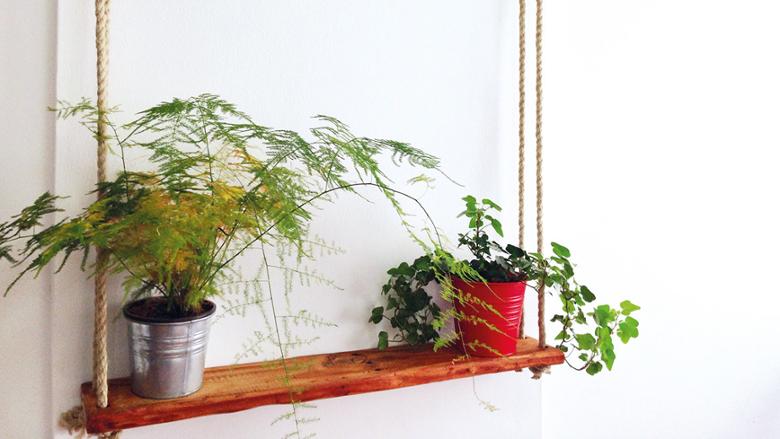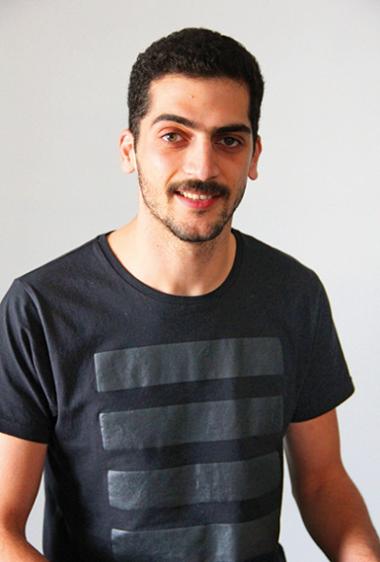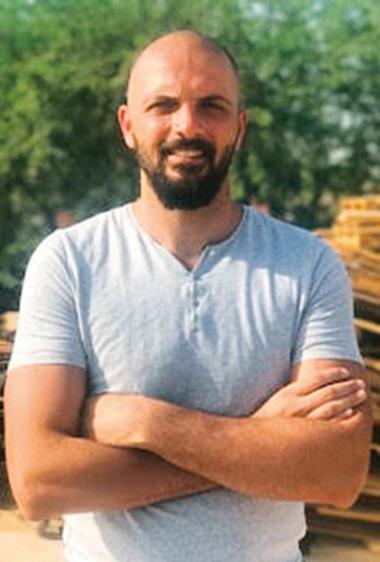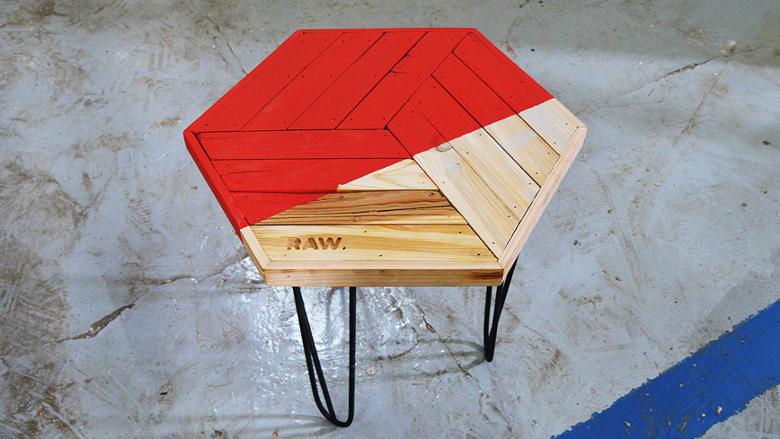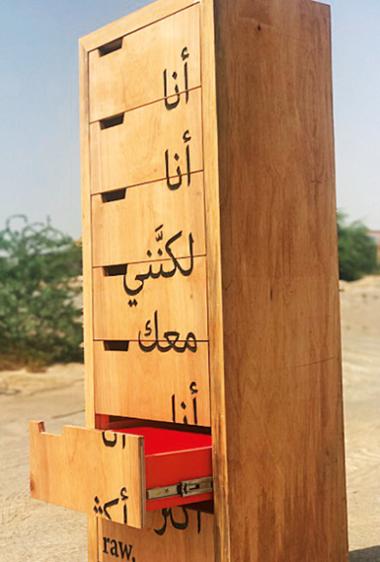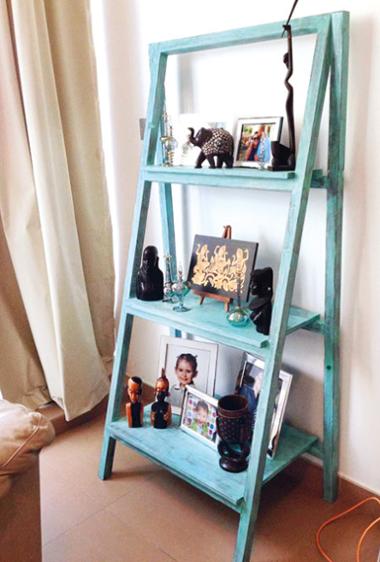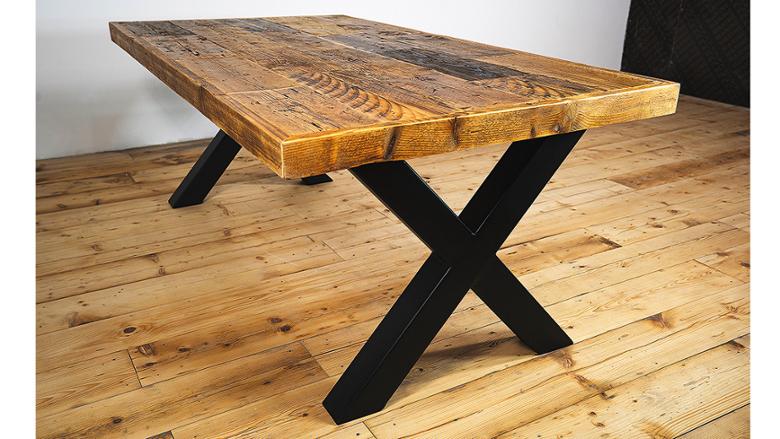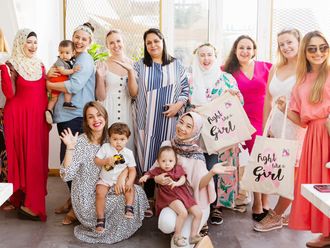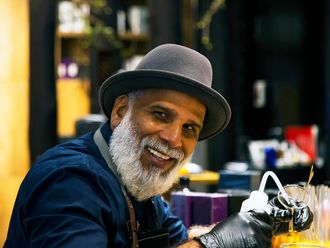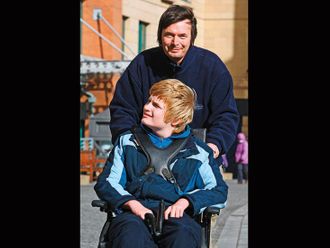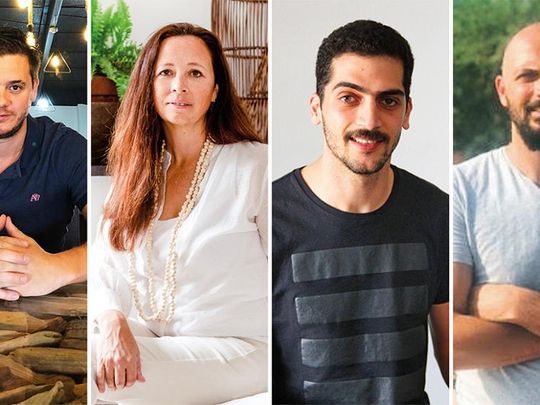
We’ve all had the benefits of recycling drummed into us — it’s good for the planet. But a wave of creatives have caught on to the trend of upcyling — reusing castoff and discarded items creatively, ensuring it’s not just good for the planet but looks good too. Simply put, today’s rubbish could become tomorrow’s statement piece. We meet four green designers who are creating practical pieces of furniture from reclaimed wood.
Jo England, Tribe Dubai
Even as a 14-year-old girl, Jo England’s priorities when it came to redecorating her bedroom was bamboo blinds for windows. The sustainability of her choice wasn’t conscious. In fact, the Australian national credits it as second nature, having grown up in the outdoors and a household scattered with vintage rattan chairs from her mum’s childhood. So launching Tribe Dubai, an eco-friendly home décor studio in Al Quoz, in 2015 seemed like the most natural progression for the former senior art director. The turning point came while living in Kuala Lumpur. Jo found herself craving a creative outlet and a change of career after working for 25 years in corporate branding. ‘I took a leap of faith and followed my passion by redeveloping derelict property into beautiful homes.’

In the process of buying and transforming dank, uninhabitable spaces in Malaysia into light-filled homes, Jo realised she wanted to step up her upcyling mission and decorate these homes with eco-friendly repurposed furniture and décor. The master builder’s granddaughter channelled her inherent craftsmanship to tirelessly handmake kitchen tiles from concrete and convert security bars into dining room shelving units. When she couldn’t build furniture from scratch, she started curating.
‘Soon I had a growing collection of rugs, homeware, décor and lighting that turned into Tribe when I moved to Dubai in 2013 as there weren’t any stores here that offered the kind of ethical and eco-friendly home décor I had collected over the years.’
[Initiatives by the government, some companies and individuals are helping reduce the amount of used furniture in the UAE from ending up in landfills]
At its core, Tribe sells sustainable, handcrafted pieces sourced ethically from over 25 different countries — think Malawi, Indonesia, Morocco and Ghana — directly from the artisans as part their village-to-villa concept and are crafted of renewable eco-rattan or bamboo products and even rugs woven from recycled plastic bottles. ‘Sustainability is more a lifestyle than a trend and much like diet, people in Dubai like to be aware of where the products they’re using come from and that no kids in sweatshops were involved in their making.’

When she couldn’t ship furniture quickly enough to meet her eco-conscious clients’ growing demands, Jo and her team of eight designed and created a collection of furniture from salvaged wood in the UAE. ‘I believe in “waste not, want not”. As a business we can’t ignore that football-field sized areas of forests are being destroyed every two seconds.
‘The aged wood comes to us from junkyards we’ve tied up with, and we restore it with a natural finish that reveals the original wood’s grains and markings, reflecting its story.’
When she couldn’t ship furniture quickly enough to meet her eco-conscious clients’ growing demands, Jo and her team of eight designed and created a collection of furniture from salvaged wood in the UAE called the PEG + Collection. The range’s stylishly crafted ladder shelf, mirror, breakfast table and desk all come with eponymous pegs to hang bags, accessories and clothes from, making the range functional and upholding her core beliefs about what makes a piece of furniture sustainable.
‘It should be good for the artisan, good for the community and good for the environment.’
Shaban and Mohammed Al Huniti, raw design + build
Brothers Shaban and Mohammed Al Huniti started their design firm, raw design + build, as part of an experiment to see if furniture design in the region could focus on three aspects of sustainability — functional, social and environmental.
The germ of the idea sprouted into a full-blown concept of repurposing reclaimed wood to create furniture when Amman-based architect Mohammed created side tables for a client out of wooden pallets. ‘The tables sparked the idea of using reclaimed wood for furniture and eliminating the step of purchasing new material and depleting natural resources,’ says Shaban. And like all great projects, there’s been no looking back since for the siblings since they launched their first collection online in 2017.
Today, raw design + build is a full-time venture that combines both Shaban and Mohammed’s expertise to create sustainable but aesthetically pleasing furniture that’s handmade for most part, with production split between Amman, Dubai and Italy. Mohammed, a LEED-accredited designer and architect, focuses on renovation and restoration, while Shaban, a former brand manager, is trained in product design.
The result is a range of furniture that uses natural and recycled materials. ‘Alongside wood, we also use steel, glass and natural stone. We also ensure that any new material we use is accredited as environmentally safe,’ explains Shaban. The reclaimed and abandoned materials for their products are recovered from construction sites, industrial areas, warehouses, art galleries and a few shops. ‘When you train your eye to find it, you’ll start noticing them everywhere,’ explains Shaban. What makes the laborious task of sourcing reclaimed wood rewarding, says Shaban, is that they often inspire their use.

It was such inspiration that led the brothers to design and execute a chillout zone in a Ras Al Khaimah factory using wood found from the factory. Their star product, however, is the Jack of Hex — a hexagonal table paying homage to beehives and their key role in the environment. ‘The hexagon is the strongest shape in nature and the reason beehives weather earthquakes,’ says Shaban. When they’re not busy designing customised furniture for clients, they’re working building an entire villa out of reclaimed wood in collaboration with two Italian architects.
Carefully crafted, reclaimed-wood furniture comes at a cost and Shaban is quite forthwith about hidden expenses: ‘Many assume abandoned material is cheaper but it takes money to source, prune and treat wood.’ However, he doesn’t feel it should send potential eco-friendly shoppers running for stores selling cheaper mass-produced variants. ‘The long-term social impact of reclaimed furniture is great. It’s good for the environment and the cost difference is what we pay local craftsmen and artisans. In fact, our products sell out quickly after a launch, which shows how environmentally aware people in the UAE are.’
Benjamin Swan, Driftwood Factory
Londoner Benjamin Swan dove headfirst into making eco-friendly, sustainable furniture when his career as a professional scuba diver gave him front-row seats to the insidious destruction humans were wrecking on the oceans. ‘The ocean is littered with plastic and wood and junk of all kind. And the beaches and shoreline around Abu Dhabi are littered with driftwood,’ he says, going on to explain how these floating debris haven’t found their way into the sea naturally but are a fallout of human activities such as dismantling of boats.

What surfaced from those dives was an idea to turn trash into treasure and Driftwood Factory was born in April 2015. Having grown up dabbling in carpentry and woodworking projects with his dad for a lark, Benjamin decided to turn his hobby’s skillset into a full-time business that breathed new life into dead driftwood by converting them into gorgeous pieces of furniture.
‘Initially, I’d collect driftwood after my dives and fashion them into furniture for myself and friends. But the feedback was great and Abu Dhabi didn’t have any outlets that created customised, sustainable furniture,’ explains Benjamin.
Three years on, Driftwood Factory is a 15-member-strong team with a factory and a workshop that now recycles all kinds of abandoned and used wood into dining tables, consoles and more. ‘We source wood from construction sites and use pallets, scaffolding planks as well as metal from junkyards to reduce wood usage and give an industrial feel to the products,’ says Benjamin.

While junkyards contact them whenever a unique item shows up, Benjamin and his business partners also do regular scavenging hunts for abandoned wood and recently salvaged a tree trunk from the industrial area in Musaffah. ‘We saw a beautiful tree being cut down to expand the road and all that remained was a uniquely shaped trunk. We took it to the workshop not knowing what to do with it. A few months down the lane this tree trunk became the leg of a table commissioned by a coffee shop and we topped it off with wood from scaffolding boards. Benjamin finds the unexpected nature of each material’s journey into something meaningful, lasting and satisfying — it’s the stories they tell that matter. ‘Driftwood is weathered by sun, sand and sea and has a distressed texture as the soft wood is eaten away and only the hardwood remains.’
Another facet of the business that Benjamin takes pride in is that everything is made in the UAE, knocking down the region’s consumerist culture stereotype where everything is imported and heavy on carbon footprint.
Locking down wining designs is a lot of trial and error, says Benjamin, and is steered by the response and feedback of followers on social media. But what they have nailed down is creating sustainable customised furniture that ‘helps rectify our damages on the environment’.



